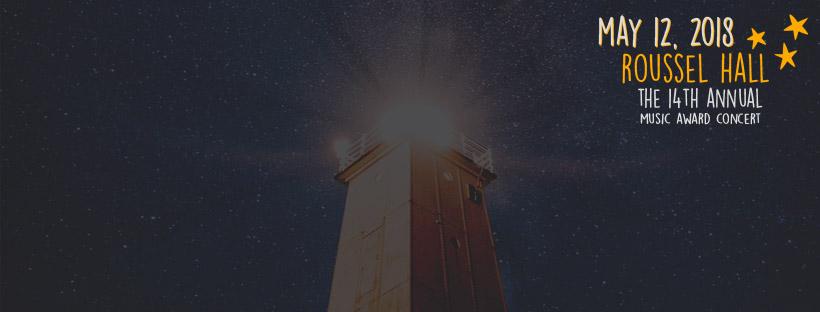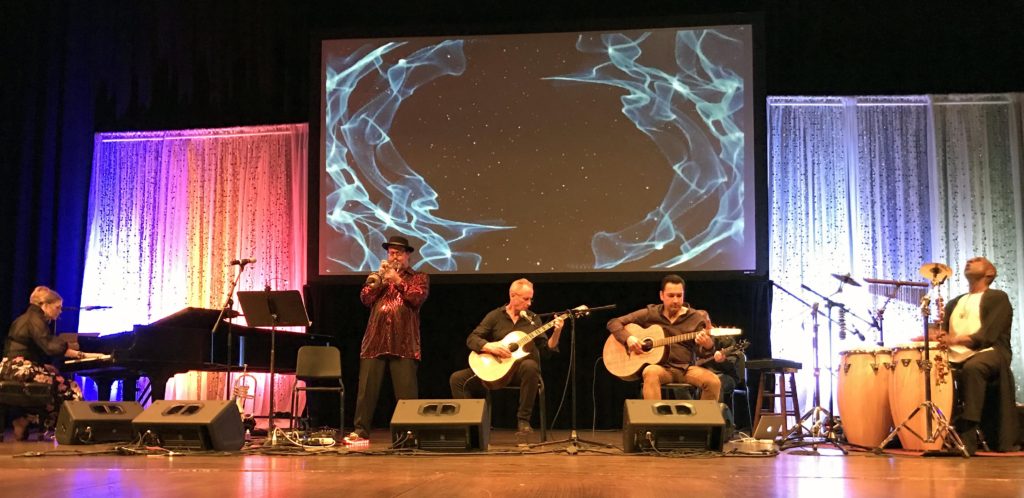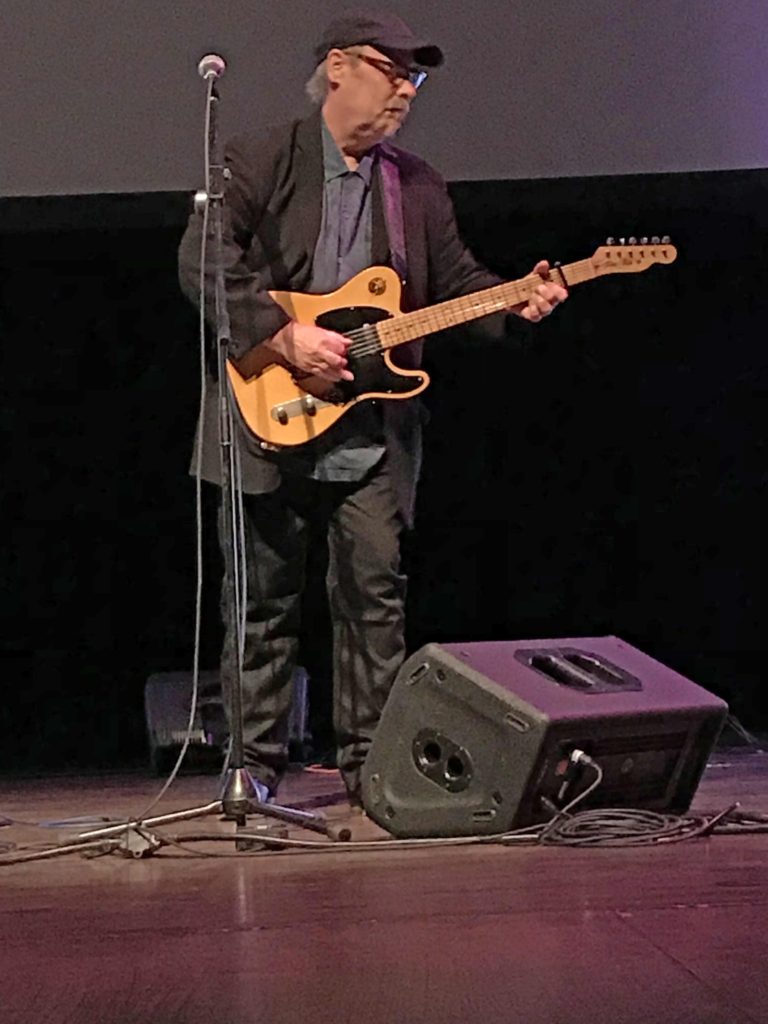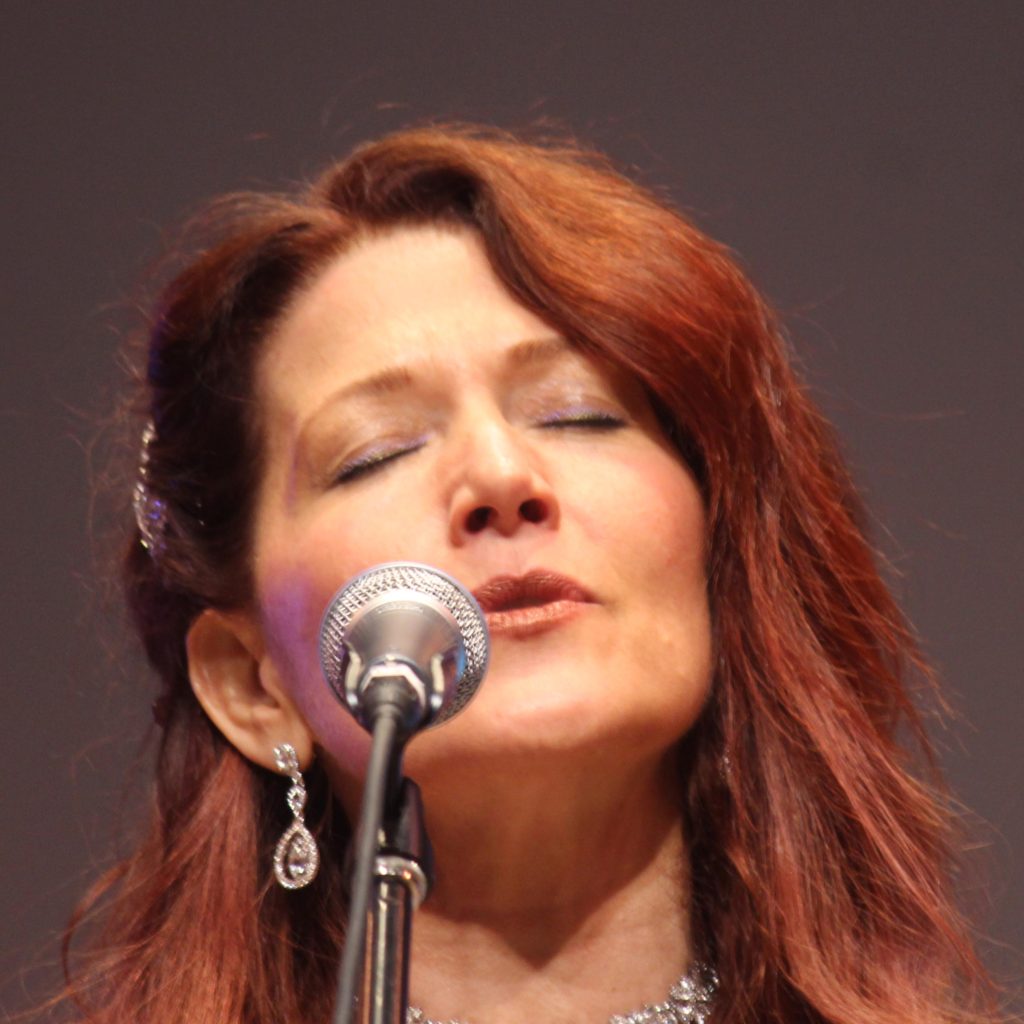Zone Music Awards 2018
by John Diliberto 5/15/2018 The ZMR Music Awards descended on New Orleans this year, a quiet counterpoint to the Bourbon Street mania happening a few blocks away. There were no Hurricanes or “yard-long” drinks at this event, nor beads tossed to woman flashing their assets. This is a more genteel, contemplative and sedate affair.
The ZMR Music Awards descended on New Orleans this year, a quiet counterpoint to the Bourbon Street mania happening a few blocks away. There were no Hurricanes or “yard-long” drinks at this event, nor beads tossed to woman flashing their assets. This is a more genteel, contemplative and sedate affair.
In my first review of the annual ZMR Music Awards in 2016, I wrote that “The children and grandchildren of Windham Hill Records had a family reunion this weekend.” This year I’m going to have to add great-grandchildren to that.
The nominees of the Zone Music Awards this year are an odd collection. There’s a 70-year-old, Tom Moore, who won along with Sherry Finzer in the Best Meditation/Relaxation Category. He flew corporate jets, earned a masters in religious studies and played with Keith (“98.6”) and other 60s pop acts on shows like Where the Action Is. Many of the attendees are old enough to remember that show. But not Faith Angelina. The now 13-year old pianist managed to beat out several more senior and seasoned musicians for the Best New Artist Category at the ZMR Awards.
As in years past, this year’s ZMR Awards, which took place on May 12 at Roussel Hall on the Loyola campus, provided many surprises and lots of music. The Awards are voted on by reporting members of the Zone Music Reporter, an industry trade site for, essentially, New Age radio programmers. Categories range from Solo Piano and Neo-Classical, to Ambient and Electronic and World Music.
About half of the performers this year were also nominees, but not the two artists who bookended this year’s show: guitarists Ciro Hurtado and Eric Tingstad. Hurtado is still best-known for his work with the Latin fusion group, Huayucaltia. A diminutive and elegant man with a hairbrush mustache, he doesn’t look like most of the 60s refugees here. He definitely doesn’t appear like someone who will perform a song about ayahuasca, the South American hallucinogen, but he did, in a set of acoustic guitar solos marked by precise melodies and subtle turns that were essentially classical, with Spanish touches. He wove intricate tunes that drew the audience into a contemplative, but not somnambulant state.
Eric Tingstad’s set was an excursion into Americana. Best-known for his work in the acoustic duo, Tingstad & Rumbel, Eric took the stage dressed in a black baseball cap and clothes loose enough for a man twice his size. With only a mustard yellow Stratocaster guitar slung around his neck, he took the crowd on an unexpected journey through a twangy, spare rustic sound that ended with a beautifully-arranged rendition of “Somewhere Over the Rainbow.”
In between that was music you’d expect to hear at the ZMRs. Best New Artist nominee Art Patience played a set that was quite a bit different from his ambient harmonica album, The Recognition. He was joined by another guitarist, Darin Mahoney for a set that revealed the blues and folk roots in his music. Kathryn Kaye rendered a set of her sedate and vaporous piano music, joined by Jill Haley on English horn for a couple of songs, and FLOW percussionist Jeff Haynes on a song that moved toward a pulse.
There are never many singers at ZMR Awards, but Rebecca Eden uncapped her three and a half octave vocal range on a set of tunes joined by members of Blow Up Hollywood, guitarist Steve Messina and cellist Dave Eggar.
The center of the evening’s performances was FLOW, the band whose name is an acronym for pianist Fiona Joy, guitarist Lawrence Blatt, flugelhorn player Jeff Oster and guitarist Will Ackerman. The band took home two awards, for Best Contemporary Instrumental Album and Album of the Year. Joined by utility man and producer Tom Eaton on bass and synths, and Jeff Haynes on percussion, they played a set of tunes from their debut album that revealed their subtle, intuitive interplay, music that values the tapestry of sound over individual threads. Although I could have gone for a solo or two, they created a music of subtle shadings and slowly decanted moods, despite Jeff Oster wearing a cherry red metallic shirt and LED lit sneakers straight off of Bourbon Street.
Fourteen awards were given. Besides those previously mentioned, Karen Olson and Crispin Barrymore won in Best Neo-Classical for their album, A Hero’s Journey. Darlene Koldenhoven took home the Best Vocal Album Award for her swooning Color Me Home album, topping Blackmore’s Night among others.
Flutist Sherry Finzer beat out Aine Minogue, Byron Metcalf, 206 Lifetime Achievment Award winner Deuter, and herself, for Best Relaxation/Meditation album. Her winning album with Tom Moore, Let There Be Light, was pitted against her album with Peter Sheridan, Traveler. Best Chill/Groove Album went to Tom Grant’s Sipping Beauty an album of lounge act moods and sugar-laced arrangements. Best Instrumental Album went to the Nouveau Flamenco duo Terra Guitarra’s Of Sea and Stars, beating out strong albums by Adam Werner (Deep) and Tom Caufield (Forging the Moonlight). Best World Album went to the world fusion ensemble AO Music featuring the voice of Adiemus singer Miriam Stockley. Their complex, globally vocal orchestrations beat out strong albums from Jim Stubblefield (Guitare Mystique), Mystic Journey (Kingdom of Mountains) and Elise Lebec’s ambitious Origin, as well as veteran guitarist Johannes Linstead (Azul).
The Best Piano Album-Solo went to Peter Kater for his Grammy -winning album, Dancing on Water. I guess now that he’s won a Grammy after 13 attempts, he wants to grab all the awards. He beat out albums by Flow’s Fiona Joy, Michele McLaughlin, Masako, and Lynn Tredeau. Best Piano Album-with Instrumentation went to Jennifer DeFrayne’s Sisu.
One of the two biggest surprises was the double win by Australian electronic musician, Jim Ottaway. He’s been cranking out electronic albums for years, 27 since 2004, and was featured last year on Echoes. But he remains a relatively little-known musician. Despite that, in the Best Electronic Album category, his Timeless E-Motion beat out Steve Roach’s Grammy-nominated Spiral Revelation, as well as strong albums by Chronotope Project, Forrest Smithson and Michael Whalen. And in the Best Ambient Album Category, his album Deep Space Blue topped previous ZMR winner Jeff Pearce, as well as notable artists like David Helpling and Carl Weingarten & Catherine Marie Charlton. I’m surprised he didn’t grab the Album of the Year award away from FLOW.
The other surprise was awarding the Best New Artist Award to Faith Angelina for her album, Reaching 12, that number being her age when she recorded it. Angelina has a nearly tragic back story, and it’s a lovely endeavor for a 12-year-old, but it doesn’t rise above a parlor piano recital. I give her credit for going outside the teenage girl box covering Taylor Swift songs on YouTube, but I think the membership voted more on sentiment than art here. There’s no denying that she’s a new artist though.
The real disappointment of the ZMR Awards was the last-minute cancellation by synthesist Steve Roach. He was given the Lifetime Achievement Award and had planned to attend before a nasty head-cold prevented him from flying in. Steve Roach’s “New Age” days are decades behind him. He’s moved into a much more rarefied realm, but his influence still permeates many of the musicians at the ceremony. They put together a tribute film that included on-camera comments from music associates like Robert Rich, Byron Metcalf and Erik Wøllo. Stephen Hill, host of Hearts of Space, gave the most concise and pithy analysis of Roach, albeit off-camera. It ended with a picture of Roach in semi-profile staring off to the Arizona horizon as Hill intoned the line, “You’re the Man.”
This year’s production ran smoothly under the hands of longtime Show and Stage Director Mary Bartlein, also a radio host on WMSE. The presenters all took the stage with humor, few more so than bassist Erik Scott, a raconteur of the first order. Someone said he should be the host next year. That statement takes nothing away from the poised Emcee job done by ZMR veteran Renee Blanche who performed with her usual aplomb.
The ZMR Music Awards have been at a steady-state over the last few years. It’s a gathering of the tribe, but a tribe that is shrinking. Attendance seems slightly less every year and the bulk of attendees are the artists, not the radio hosts who vote on the music. The awards already have the core of something really beautiful, a community of like-minded artists, most of whom are incredibly generous in sharing their skills and experience. But it could be more than that with outreach to radio hosts and artists creating in the post-New Age zone. Just a thought.




Hey John, Thanks for the review. A couple of comments. Attendance was up this year from last year and would have been more but like Steve Roach, we had some cancellations due to illness or family issues. Also, this was the first year that a number of broadcasters were in attendance.